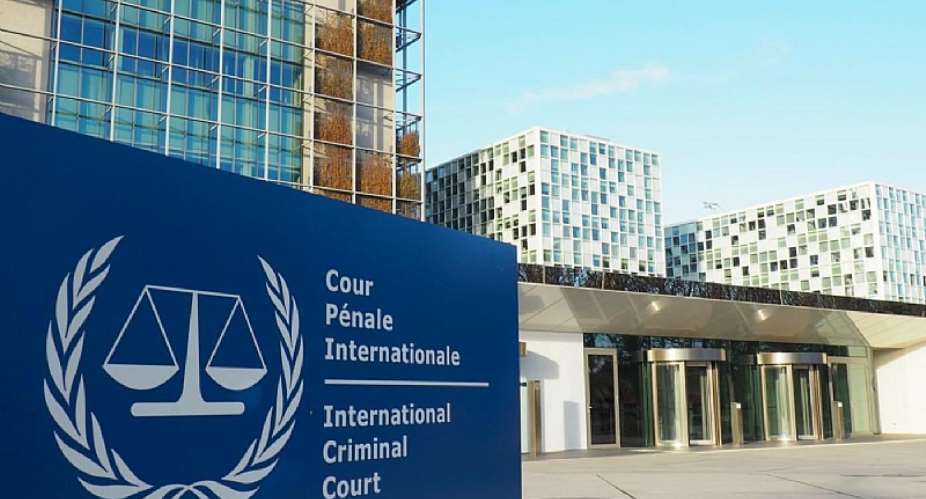The International Criminal Court (ICC) was established with the goal of ensuring that individuals who commit heinous crimes such as genocide, war crimes, and crimes against humanity are held accountable for their actions. However, the ICC's record of issuing arrest warrants has been marred by allegations of double standards, particularly when it comes to leaders from the West who have engaged in war crimes.
One example of this double standard is the recent controversy surrounding the ICC's decision to issue an arrest warrant for Russian President Vladimir Putin. The warrant was issued in connection with allegations of war crimes that Russia committed Ukraine, including the ongoing conflict in Ukraine.
While the allegations against Putin are serious, many have pointed out that the ICC has been much less willing to take action against Western leaders who have engaged in similar acts. For example, the ICC has yet to take any action against former US President George W. Bush and former UK PM Tony Blair, despite evidence that both administration engaged in torture and other war crimes during the Iraq invasion.
Similarly, the ICC has been criticized for its failure to take action against Israeli leaders who have been accused of war crimes in the ongoing conflict with Palestine. Despite numerous allegations of human rights abuses and war crimes, the ICC has yet to issue any arrest warrants against Israeli leaders, leading many to accuse the court of bias.
This double standard has led to accusations that the ICC is more concerned with politics than justice. Critics argue that the court is more likely to take action against leaders from countries that are perceived as adversaries of the West, while turning a blind eye to similar actions by Western leaders.
Furthermore, the ICC's selective enforcement of international law undermines the court's legitimacy and credibility, leading many to question whether the court is truly impartial and independent. This could ultimately make it more difficult for the ICC to achieve its goal of promoting accountability for international crimes.
In conclusion, the ICC's decision to issue an arrest warrant for Putin while ignoring similar allegations against Western leaders highlights the court's double standards when it comes to enforcing international law. This selective enforcement undermines the court's credibility and legitimacy, and could ultimately make it more difficult for the ICC to achieve its goal of holding individuals accountable for international crimes.





 Western North been sidelined for far too long; address our needs before 2024 ele...
Western North been sidelined for far too long; address our needs before 2024 ele...
 Effutu: 'Stop eating at night and take care of your health' — Afenyo Markin advi...
Effutu: 'Stop eating at night and take care of your health' — Afenyo Markin advi...
 Akufo-Addo's desperate attempt to disrupt Yagbonwura's 1st year anniversary cele...
Akufo-Addo's desperate attempt to disrupt Yagbonwura's 1st year anniversary cele...
 Armed robbers attack, rob Sethi Brothers Ghana Limited in Tema
Armed robbers attack, rob Sethi Brothers Ghana Limited in Tema
 SML deal: We commend Manasseh for holding gov't to account, Akufo-Addo for not s...
SML deal: We commend Manasseh for holding gov't to account, Akufo-Addo for not s...
 Our recall invocation is in good faith to consider three key issues – Majority
Our recall invocation is in good faith to consider three key issues – Majority
 You’re inviting bad luck upon yourself if you use Indian hair — Spiritualist war...
You’re inviting bad luck upon yourself if you use Indian hair — Spiritualist war...
 Ejisu by-election: Police questions Kwadaso MP, two others over bribery allegati...
Ejisu by-election: Police questions Kwadaso MP, two others over bribery allegati...
 Nana Kwame Bediako is Nkrumah’s reincarnate; he’ll be president if he appoints N...
Nana Kwame Bediako is Nkrumah’s reincarnate; he’ll be president if he appoints N...
 Dumsor: Mahama gave us ‘dum, dum, dum’ but we are now in the era of ‘dum sie sie...
Dumsor: Mahama gave us ‘dum, dum, dum’ but we are now in the era of ‘dum sie sie...
